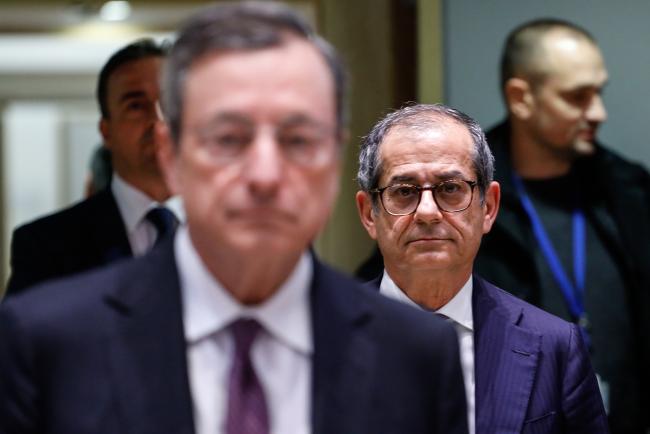(Bloomberg) -- Italy’s government may offer the European Commission a minor concession when it resubmits its budget after an unprecedented rejection last month.
The populist administration may admit its 2019 spending plans will have a smaller economic impact than previously projected, and cut its growth target to as low as 1.3 percent from 1.5 percent, Il Sole 24 Ore reported on Tuesday. La Stampa reported that Finance Minister Giovanni Tria wants to lower the 2019 GDP growth target even further to 1.2 percent, which would be in line with the level forecast by the commission.
But there will be no movement on the controversial budget gap, major newspapers said. Still, Premier Giuseppe Conte hopes the resubmission to the EU will be at least partially conciliatory, Il Messaggero reported. Deputy Premiers Luigi Di Maio and Matteo Salvini have been insisting on the original plan.
Italy has until the end of Tuesday to resubmit its spending plans. Rome says the expansive budget is needed to provide a stimulus to growth, but authorities in Brussels are concerned about what it will do to the country’s debt, already Europe’s largest in absolute terms.
In addition to causing clashes with the commission, the fiscal plans have also unnerved investors and sent borrowing costs to the highest in more than four years.
Domestically, it’s not been much smoother, with a push to deliver on election promises sparking wrangling between deputy premiers Di Maio of the anti-establishment Five Star Movement, and Salvini of the anti-migrant League.
Conte is due to hold a meeting with key ministers on the 2019 budget later on Tuesday.
In addition to predicting weaker growth, the EU’s executive arm said Italy’s budget deficit will move dangerously close to the EU limit of 3 percent. Tria rejected that at the time, saying it was based on “inadequate” analysis.
He’s also insisted that the “pillars” of the budget would remain unchanged and that adhering to EU demands would be disastrous for the economy, which stagnated in the third quarter.
“We would need extremely violent fiscal tightening, going to a deficit of 0.8 percent, which for an economy that is slowing significantly would be suicide,” he said last week after meeting with Eurogroup President Mario Centeno.
